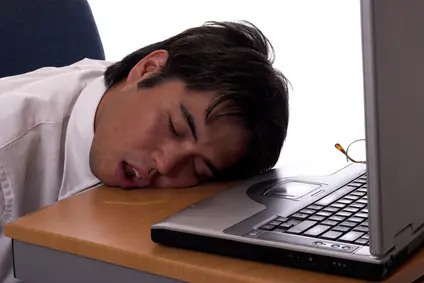By Jane Sandwood
Adults (aged 18 and over) need between 7-9 hours of sleep a night.
Yet only a third of Americans are sleeping enough. You can improve your sleep by focusing on two things: your sleeping environment and regular exercise. A good sleeping environment includes what you are sleeping on.
Sleep-inducing exercise can be low-impact and, if need be, at home; exercise doesn’t always mean using fancy gear. Small changes to your daily routine can give you the best chance of regularly enjoying a decent night’s sleep.

Finding Your Perfect Mattress
When it comes to sleep, one of the most worthwhile investments is a mattress. You spend about a third of your life in bed, so it makes sense to make it a priority. It is important to familiarize yourself with the different supportive materials and cushioning available. Make sure you test out several mattresses and bed frames yourself.
A quality mattress isn’t cheap but, whilst it may seem extravagant to pay a lot for one, you won’t regret it if you’re sleeping well as a result. Inadequate sleep raises amygdala activity in the brain (which is central to negative emotions), meaning that sleep-deprived people are more likely to feel depressed, irritable and low in energy.
Likewise, sleeping well promotes feelings of positivity and greater energy in people - hence the need to help your chances of being well-rested by investing in a supportive mattress.
Why Might Exercise Send You to Sleep?
There is a substantial amount of research to indicate that exercise has a positive effect on sleep. The reasons for this though are are still relatively theoretical, aside from the obvious consequence of it physically ‘tiring yourself out’.
However, the fact that exercise lowers the stress hormone cortisol and releases endorphins makes it likely that the mind is more able to relax and ‘switch off’ in this state. Also, exercise boosts serotonin, which influences our memory, mood, digestion and behavior (among other things). When these things are well regulated, we are more likely to be able to sleep well.
How and When Should You Exercise For Sleep?
Aim for 30 minutes of cardiovascular exercise a day. Options include swimming, brisk walking, cycling and interval training. Opinion is divided among researchers about whether the time of day that you exercise can impact your sleep.
Having said that, studies reported in The Journal of Sports Sciences have shown that taking part in competitive sport is likely to impair sleep quality. Another factor to consider regarding evening exercise is that certain exercise can make you hungry soon afterwards. This is particularly true of swimming. Be mindful not to eat too much afterwards, as this can cause indigestion and disrupt your sleep.
If you find it hard to fall asleep after exercising late in the evenings, try to ensure you exercise at least a few hours before bedtime. Alternatively, supplement aerobic exercise with yoga at the end of each day.
The low-impact, meditative nature of yoga helps calm your mind whilst raising your heart rate and aiding your chances of a decent night’s sleep. There are certain yoga poses that are particularly conducive to bringing on sleep. One pose worth trying is the night-time goddess stretch: Simply:
-
Lie flat on your back on the bed and put the soles of your feet together with your legs facing outwards in a diamond shape.
-
Place your arms each side of you on the bed with your palms facing the ceiling.
-
Close your eyes and hold this stretch for ten seconds, focusing on some slow, deep breaths as you do so. Place a pillow under your knees to make the stretch a bit easier if you’re finding it too tight. Repeat this stretch for 5-10 minutes.
The Benefits of Group Exercise
If you need a bit of motivation to exercise, studies have shown that you are more more likely to exercise regularly with others than on your own.
Furthermore, exercising as part of group has the added benefit of boosting your performance, thanks to the encouragement and camaraderie that can often result from it. This is particularly true of exercise such as circuits or high intensity interval training (HIIT).
So if you think you will struggle to exercise regularly on your own, consider signing up to a cardiovascular exercise class.
Remember: When it Comes to Sleep, You Can Help Yourself
Exercise is not only good for your physical and mental health, but also plays a big part in helping you sleep. Sleep, in turn, is also vital for our physical and emotional well-being.
So make time for exercise and sleep every day and, when it comes to bedtime, make sure it isn’t too late; remember that you need at least 7 hours each night. Finally, put your electronic devices and other stimuli away. This will give you the best chance to relax and consistently enjoy some good quality sleep.
![]()
More From Fitstep.com
| How Do I Build a Bigger Butt? | |
| How to Spot Reduce Stomach Fat | |
| How I Got My Butt Kicked By a 68 Year-Old Woman | |
| Get a Ripped Six-Pack With Abdominal Sit-Ups |
Share This Page...
---
Home -> Fitness For Beginners -> Articles -> Fitness and Sleep



